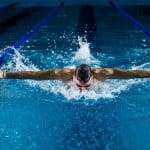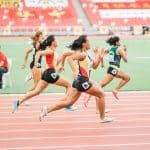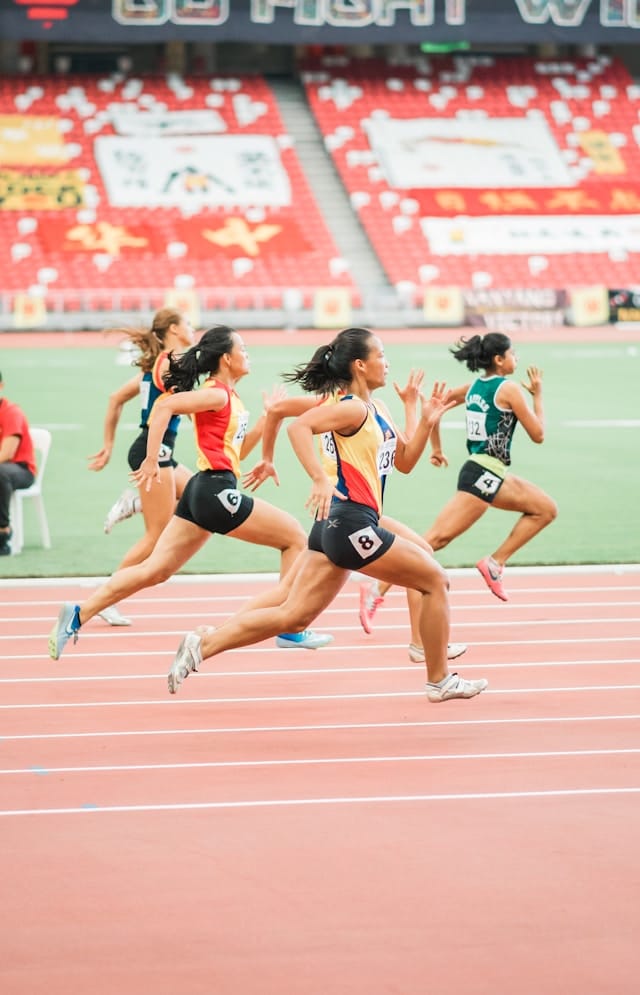In the world of sports and fitness, protein intake takes center stage. It is a crucial nutrient that athletes require to build and repair muscles. A common misconception is that it’s challenging to meet protein requirements through a plant-based or vegetarian diet. However, many vegan and vegetarian athletes are debunking this myth and thriving in their respective sports. As a health professional, coach, or even an individual on a vegetarian diet, you may wonder how to optimize a nutrition plan for vegetarian athletes. This article uncovers the secrets of crafting an individualized, balanced, and effective nutrition plan for vegetarian athletes, especially those engaged in strength-focused sports.
Understanding the Role of Protein in an Athlete’s Diet
Before we delve into constructing a nutrition plan, let’s first understand the vital role protein plays in an athlete’s diet.
In the same genre : What’s the Impact of Real-time Heart Rate Monitoring on Performance in Competitive Swimmers?
Proteins are the building blocks of the body. They are essential for the growth and repair of muscle tissue, production of enzymes and hormones, and support of the immune system. For athletes, particularly those involved in strength sports like weightlifting, the need for protein is heightened due to the constant strain put on their muscles during exercise.
A paper indexed in PubMed suggests that athletes may require twice as much protein as non-athletes to support muscle recovery and growth. However, the type and timing of protein intake can significantly affect its utilization by the body. Hence, incorporating a variety of protein sources at different times of the day can enhance an athlete’s performance and recovery.
Also read : What Are the Psychological Interventions for Building Resilience in Young Boxers?
Sourcing Protein from Plant-based Foods
The next step is to identify plant-based sources of protein.
While meat and dairy are common sources of protein, numerous plant-based foods also contain significant amounts of this essential nutrient. For instance, lentils, chickpeas, tofu, tempeh, quinoa, and certain vegetables like spinach and broccoli are rich in protein.
An advantage of plant proteins is that they are often lower in calories and fat compared to animal proteins, and higher in fiber and antioxidants, which can benefit athletes’ overall health and performance. Additionally, studies on Google Scholar indicate that plant-based diets can reduce the risk of chronic diseases such as heart disease and type 2 diabetes.
However, it’s crucial to note that not all plant proteins are complete, which means they don’t contain all essential amino acids your body needs. Thus, it’s essential to combine different plant proteins to ensure a complete amino acid profile.
Building a Plant-based Nutrition Plan for Athletes
Now that we’ve identified the need for protein and potential plant sources, let’s discuss how to build a balanced, plant-based nutrition plan for strength athletes.
Start by calculating the athlete’s daily protein requirement. This can vary based on the athlete’s weight, the intensity of their training, and their overall goals. Once you have this information, you can begin planning meals that meet this requirement.
Balance is key when constructing a vegetarian meal plan. Ensure each meal includes a good source of protein, along with carbohydrates and fats. Carbohydrates are the body’s primary energy source during high-intensity workouts, while healthy fats provide long-lasting energy and aid in nutrient absorption.
It’s also crucial to include a variety of foods to ensure the athlete receives all necessary vitamins and minerals. A diverse diet can help prevent nutrient deficiencies that could potentially affect performance.
Tips for Maximizing Nutrient Intake and Absorption
Lastly, let’s talk about how to maximize nutrient intake and absorption.
Timing is a critical factor in nutrient absorption. Consuming protein immediately after a workout, for instance, can significantly enhance muscle recovery and growth. Additionally, studies in PubMed have shown that pairing certain foods can increase the absorption of specific nutrients.
For example, combining iron-rich foods with vitamin C-rich foods can enhance iron absorption, which is particularly important for athletes as iron is crucial for oxygen transport to the muscles.
As for protein, consuming it with carbohydrates can improve protein synthesis and replenish glycogen stores, which is ideal for post-workout recovery.
In conclusion, crafting a plant-based diet for strength athletes is not as challenging as you might think. It requires a good understanding of the athlete’s nutritional needs, a variety of plant-based protein sources, and careful meal planning. With these considerations in mind, you can create a nutrition plan that supports optimal athletic performance.
The Influence of a Vegetarian Diet on Body Composition and Exercise Performance
Now, let’s assess the influence of a vegetarian diet on body composition and endurance in athletes.
Vegetarian and vegan diets have been shown to influence body composition positively. Research indexed on Google Scholar suggests that those following a plant-based diet generally have lower body mass indexes (BMIs) and less body fat. This is largely due to the high fiber content in plant-based foods, which provides a feeling of fullness and may also increase metabolism.
Additionally, studies suggest that a plant-based diet could enhance exercise performance. For example, a review in the American Journal of Sports Medicine indicates that vegetarian diets could improve aerobic exercise performance due to their high carbohydrate content, which helps to maintain muscle glycogen stores, the primary energy source during endurance exercises.
Moreover, consuming a range of plant foods can also ensure sufficient intake of essential fatty acids, which play a role in reducing inflammation, a common issue among strength athletes. Flaxseeds, chia seeds, and walnuts are excellent plant-based sources of omega-3 fatty acids.
However, it’s important to remember that while a plant-based diet can offer numerous health and performance benefits, it’s not a guarantee of improved athletic performance. The quality of the diet, timing of nutrient intake, and the athlete’s overall lifestyle and training regimen also significantly influence performance outcomes.
Nutritional Challenges and Solutions for Vegetarian Athletes
While a vegetarian diet has many benefits, it is not without challenges, especially for athletes.
One of the primary concerns for vegetarian athletes is the risk of certain nutrient deficiencies. For instance, iron, zinc, and vitamin B12 might be harder to obtain from a plant-based diet, as they are primarily found in animal foods. According to research on Google Scholar, these nutrients are crucial for energy production and oxygen transport, both essential for athletic performance.
However, these challenges can be overcome with careful meal planning and, if necessary, dietary supplementation. For instance, iron can be sourced from legumes and fortified cereals, while B12 can be obtained through fortified plant-based milks and cereals, or a B12 supplement if required.
Additionally, it can be helpful to consult with a sports nutrition professional who can provide individualized guidance based on the athlete’s specific needs and goals. They can assess the athlete’s nutritional status, help plan balanced meals, recommend appropriate supplements, and monitor the athlete’s progress over time.
Conclusion
In summary, crafting an individualized nutrition plan for vegetarian athletes in strength sports involves understanding the role of protein, sourcing protein from diverse plant-based foods, and building a balanced diet that supports optimal athletic performance. Moreover, recognizing the potential influence of a vegetarian diet on body composition and exercise performance, as well as addressing the nutritional challenges associated with such a diet, is paramount.
As we’ve discussed, a plant-based diet can provide all the necessary nutrients for a strength athlete, but it requires careful planning and possibly supplementation in some cases. By taking these steps, coaches, health professionals, and vegetarian athletes themselves can create a nutrition plan that supports health, enhances athletic performance, and aligns with individual dietary choices. With the right approach, strength athletes can indeed thrive on a vegetarian diet.











